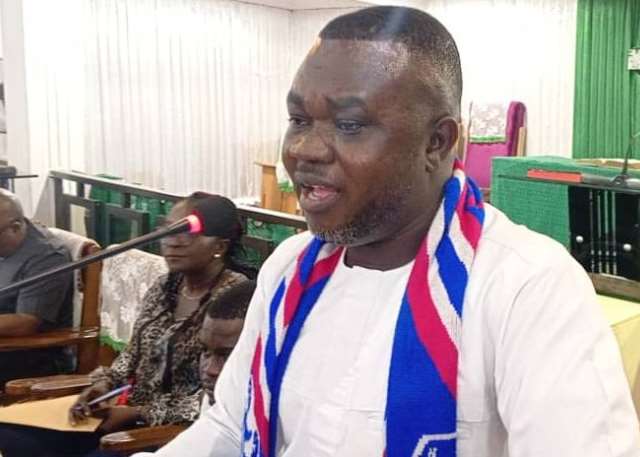Christopher Arthur’s endorsement of Bryan Acheampong for the New Patriotic Party (NPP) leadership signifies a potentially significant shift within the party’s dynamics as it gears up for the 2028 elections. Arthur, a prominent figure within the NPP, has transitioned from being a vocal supporter of Vice President Bawumia to backing Acheampong, citing the latter’s unifying leadership style as the driving force behind his decision. This move has sparked discussions within the NPP and amongst political observers, raising questions about the evolving loyalties within the party and the strategies that will shape the upcoming presidential race. Arthur’s endorsement is particularly noteworthy given his own political standing and influence within the party, further amplifying the impact of his decision.
Arthur’s rationale for supporting Acheampong centers on what he perceives as a rare quality in Ghana’s political landscape: a genuine commitment to inclusivity and constructive engagement even with dissenting voices. He recounts personal experiences where Acheampong, rather than resorting to antagonism or marginalization, actively sought dialogue and reconciliation with those who challenged his viewpoints. This approach, Arthur argues, distinguishes Acheampong from other political figures and demonstrates a leadership style that prioritizes unity and collaboration over factionalism and division. He emphasizes the importance of this quality, particularly in the aftermath of potentially divisive internal party contests, as the NPP strives to maintain cohesion and present a united front.
The timing of Arthur’s endorsement is crucial, coinciding with the NPP’s initial positioning for the 2028 presidential elections. Arthur, having secured the party’s ticket for the Agona West constituency in 2024 by unseating the incumbent MP, brings considerable grassroots support and professional credibility to Acheampong’s camp. His defection from the Bawumia camp is a significant indicator of Acheampong’s growing influence, particularly among younger professionals and legal experts who resonate with his message of unity. This shift could potentially trigger a domino effect, prompting other party members to reassess their allegiances as the leadership contest intensifies.
Arthur’s endorsement is not merely a declaration of individual support; it also contributes to the broader discourse within the NPP regarding the qualities required for effective leadership in the coming years. His emphasis on Acheampong’s inclusive approach underscores the growing importance of unity, reconciliation, and internal cohesion within the party as it navigates the post-2024 election landscape. These themes are becoming central to the NPP’s strategy for maintaining its competitiveness and presenting a strong, unified front in future elections. Arthur’s public backing of Acheampong elevates these considerations to the forefront of the party’s internal dialogue.
Furthermore, Arthur’s shift in allegiance highlights the evolving dynamics within the NPP. The party is likely to undergo significant restructuring after the 2024 elections, and the competition for leadership positions will intensify. The endorsement of Acheampong by a prominent figure like Arthur signals a potential shift in power dynamics and suggests that Acheampong is emerging as a serious contender. This development also underscores the fluidity of political alliances within the NPP and the potential for realignments as individuals and factions position themselves for future influence. The coming months will likely see further jockeying for position as the party prepares for its internal reorganization.
In conclusion, Christopher Arthur’s endorsement of Bryan Acheampong is more than just a personal expression of support; it represents a significant development within the NPP’s political landscape. It highlights the importance of unity and inclusivity as key leadership qualities, particularly in the context of the upcoming internal restructuring and the 2028 presidential race. Arthur’s move away from the Bawumia camp to support Acheampong underscores the latter’s growing influence and the potential for further realignments within the party. This endorsement serves as a catalyst for broader discussions about the direction of the NPP and the type of leadership that will best position it for success in the years to come. It will be crucial to observe how other party members respond to this development and how it shapes the evolving leadership contest.


